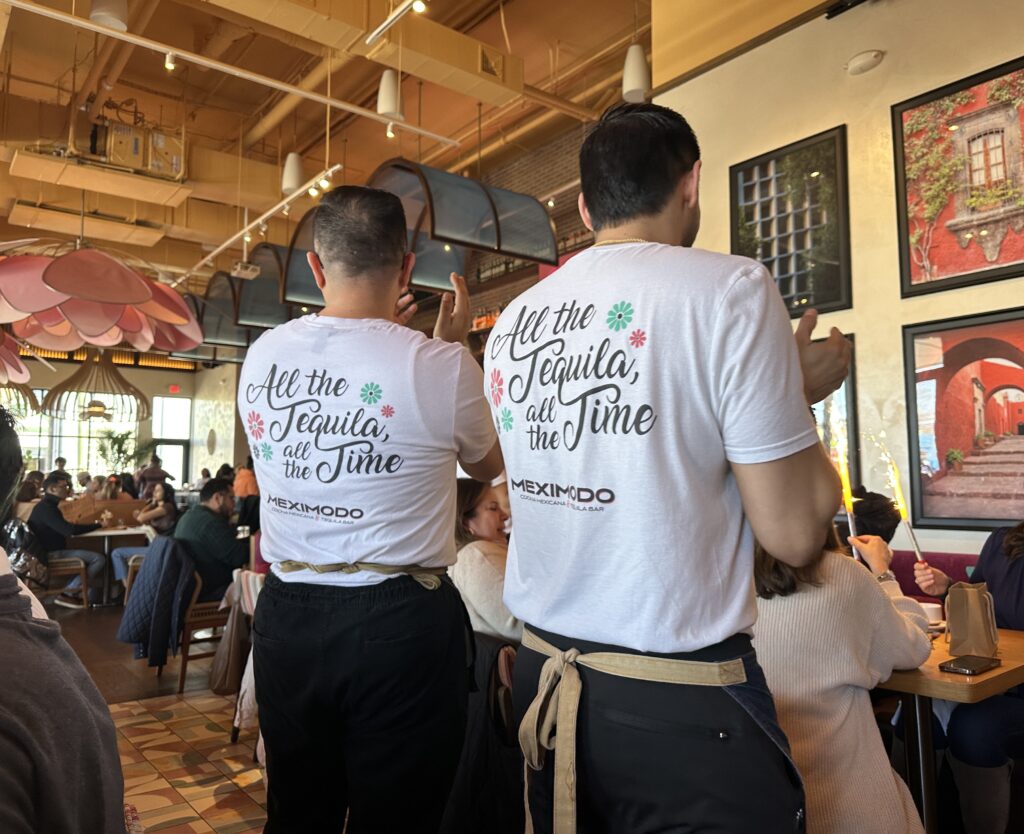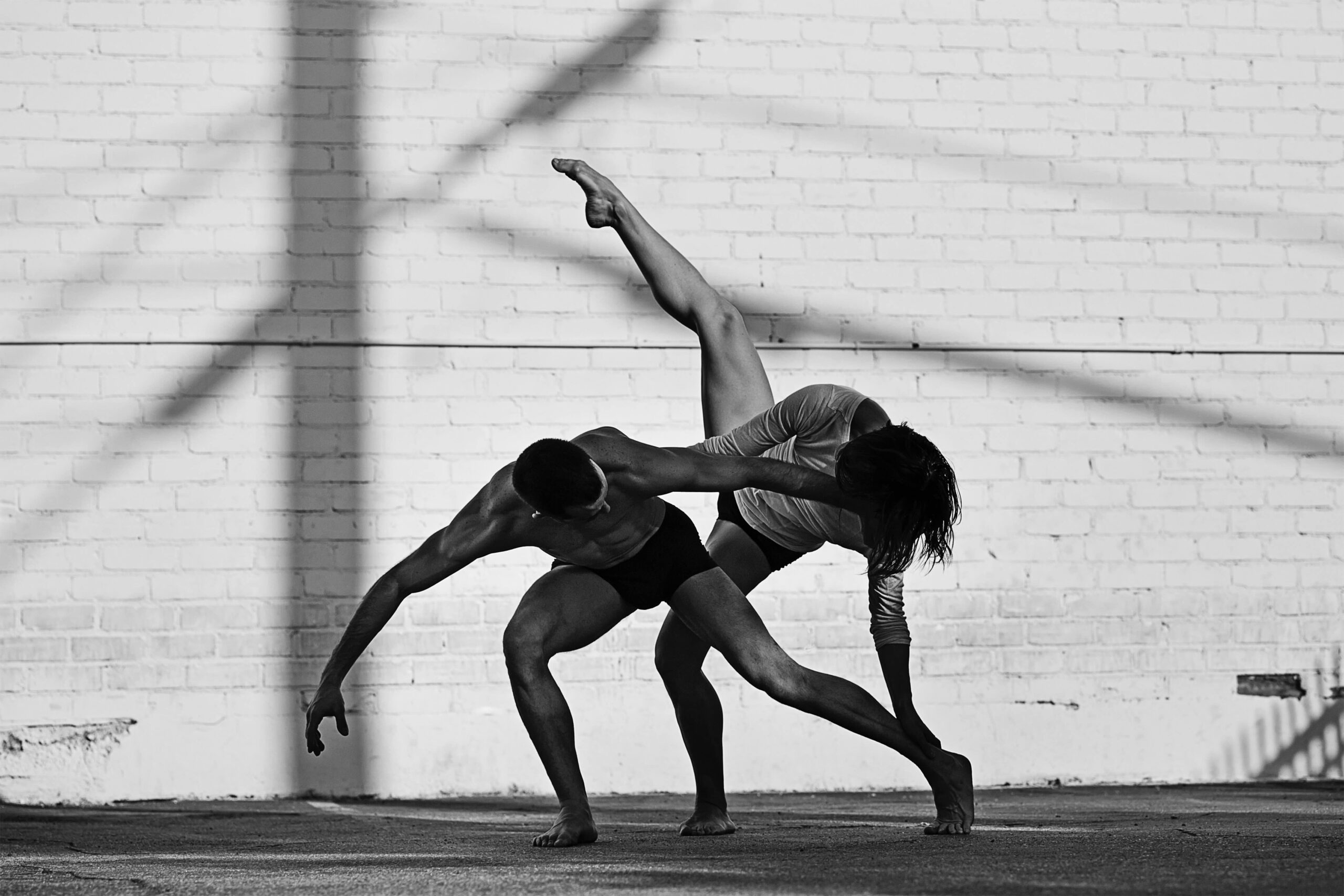(METUCHEN) – As the threat of a 25% U.S. tariff on Mexican goods looms, tequila enthusiasts are heading to Mexican restaurants and liquor stores to get their hands on blue agave spirits before anticipated price hikes hit. Vianca Martinez, dining with her fiancé, Matthew Kim, at Meximodo in Metuchen, NJ—home to the Guinness World Record for the largest tequila selection—shared her concerns. “It’s not the government that has to pay for it. It’s the people in the country that have to pay for it. We’re all going to feel the price increase,” she said.
Although no new tariffs have been imposed on Mexican goods as part of the latest global tariff announcements by President Donald Trump on April 2, existing trade policies continue to disrupt the tequila industry.

Vianca Martinez drinking a tequila cocktail. [Credit: Jannelle Andes]
The Product
“The public at large doesn’t realize that tequila has been around for centuries,” said the Diageo veteran, noting the agricultural roots of the industry. “The people who labor in the fields also know how to cultivate and farm lettuce, tomatoes, and berries. They are feeding Americans!”
Drawing from her own family of immigrant parents—her father a laborer—her voice heightened with passion, she said, “What really bugs me is when people refer to growers and farmers as unskilled laborers. It is an incredible skill to understand what goes into agave.”
Authentic tequila can only come from specific regions of Mexico—Guanajuato, Jalisco, Michoacán, Nayarit, or Tamaulipas. To be considered true tequila, it must be made from 100% blue agave and adhere to the regulations set by the Consejo Regulador del Tequila (CRT).
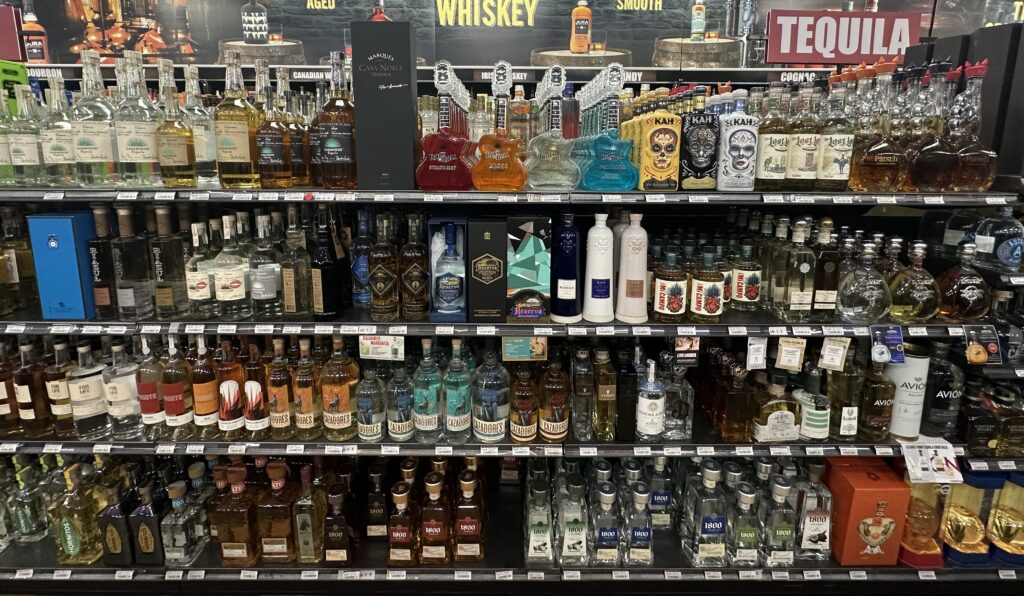
Tequila aisle at Wine Chateau in Metuchen, NJ. [Credit: Jannelle Andes]
Sitting in her car after a meeting ran late, Smith said, “Planning has been a challenge with the potential tariff target dates constantly changing.” She added that recruiting and retaining talent has become difficult due to the ongoing instability. “I want to give them work, but I understand if they look elsewhere because you just don’t know what’s going to happen. This isn’t just with tequila. It’s happening with whisky and other alcohol brands too.”
Reflecting on the policy shifts from the previous Trump administration to the current one, Smith shook her head, acknowledging that it’s more than just about money. “There’s so much to consider, including the environment and humanity,” she said. Smith and her husband have even discussed the possibility of moving out of the U.S. in the wake of escalating uncertainty.
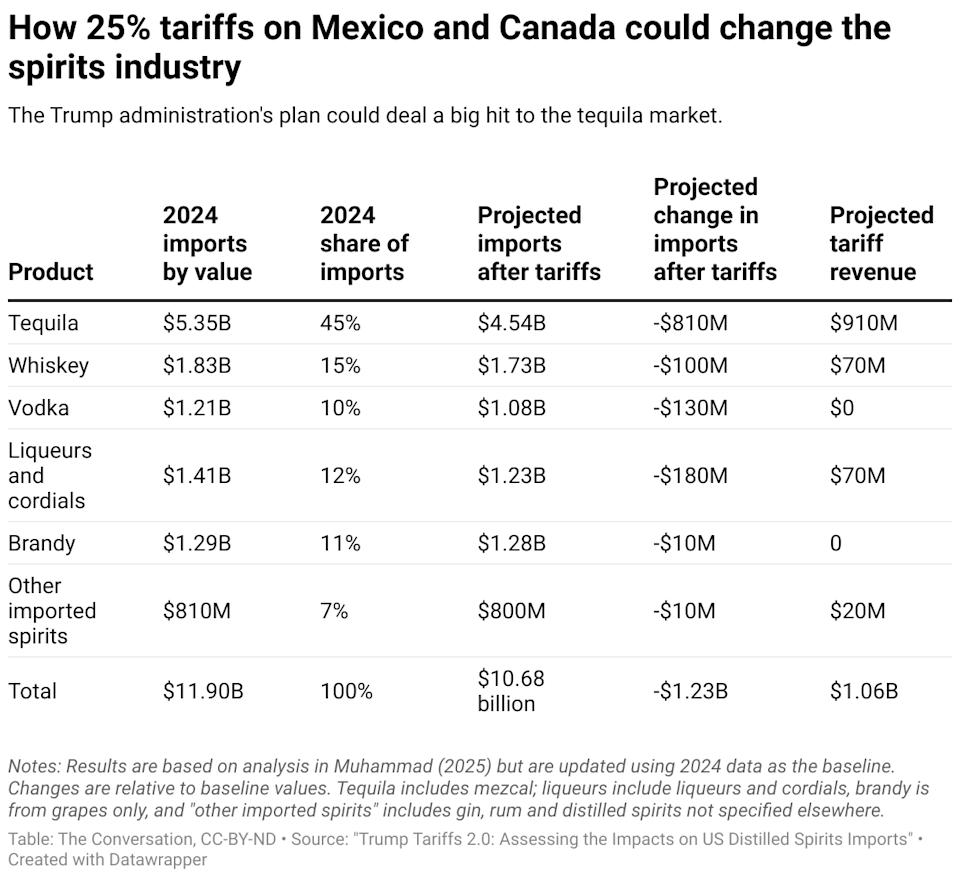
How 25% tariffs on Mexico and Canada can change the spirits industry. [Credit: Yahoo News]
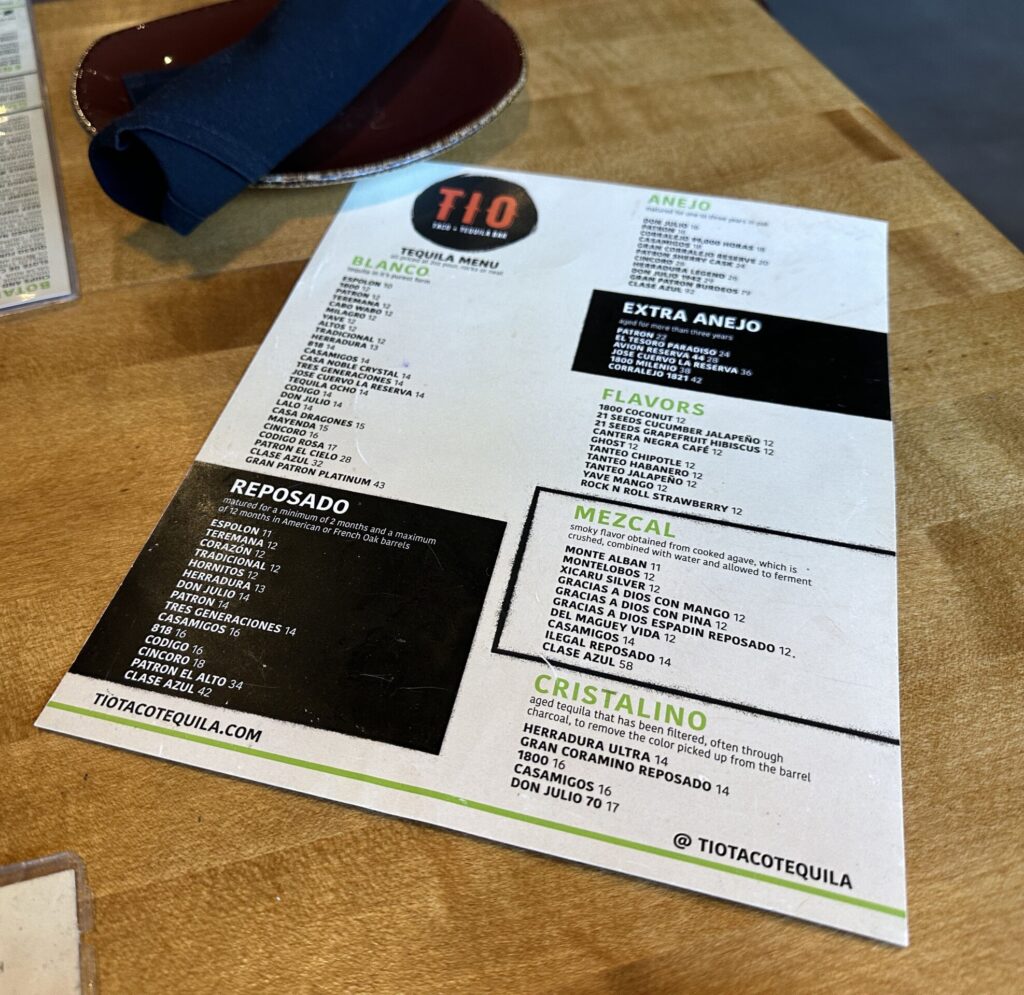
Cocktail menu at Tio Taco Tequila in Edison, NJ. [Credit: Jannelle Andes]
While some, like Publico, are worried about access to tequila, the Diageo source suggests that tariffs could actually make the spirit more desirable. “People in the U.S. don’t like being told they can’t have something,” she said. “That mentality goes back to Prohibition, when alcohol was in high demand. If the tariff makes tequila harder to get, it’ll just make it more exciting to drink.”
The Profit
Agave-based spirits like tequila and mezcal now account for 13% of total U.S. beverage spirits sales by volume and 21% by revenue. However, a 25% tariff on Mexican and Canadian wine and spirits could result in significant economic losses, including the loss of 17,000 American jobs, a $937 million reduction in wages, and a $1.8 billion decline in tax revenue.
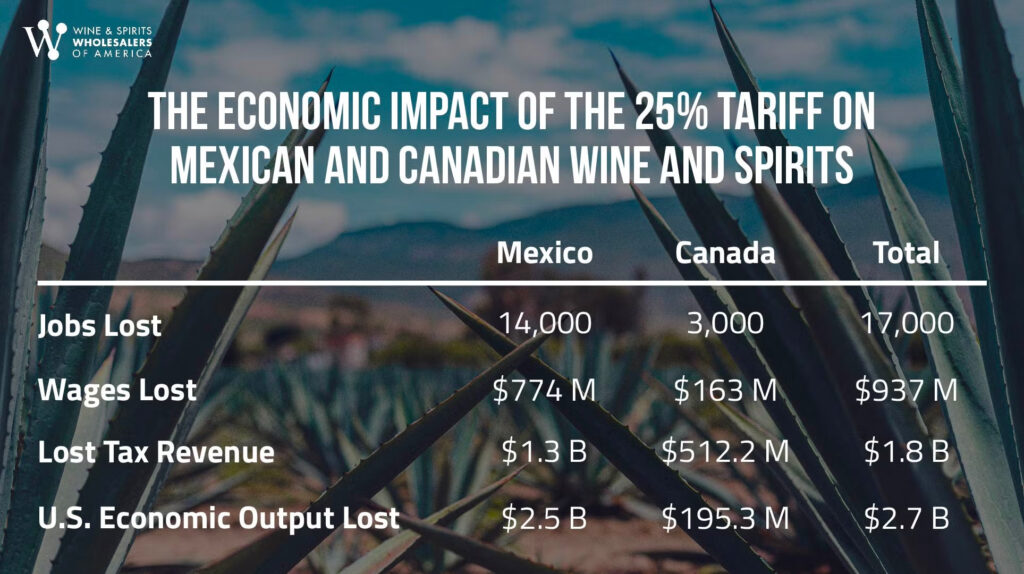
Economic impact of 25% tariffs on Mexican and Canadian wines and spirits. [Credit: Wine & Spirits Wholesalers of America]
The Party
As tequila prices fluctuate, the broader drinking culture is evolving as well. The tariff is just one more complication for an industry already in decline. “Could consumers walk away from alcohol altogether? It’s possible.” Slosek said. “Alcohol consumption is lower than ever among our generation.”
He added that younger consumers are more health-conscious, often opting for THC and CBD products over alcohol. Additionally, he noted that in recent years, dating and nightclub scenes—once closely associated with alcohol consumption—have significantly declined. “People don’t go out to nightclubs to meet people anymore—they meet online,” he said.
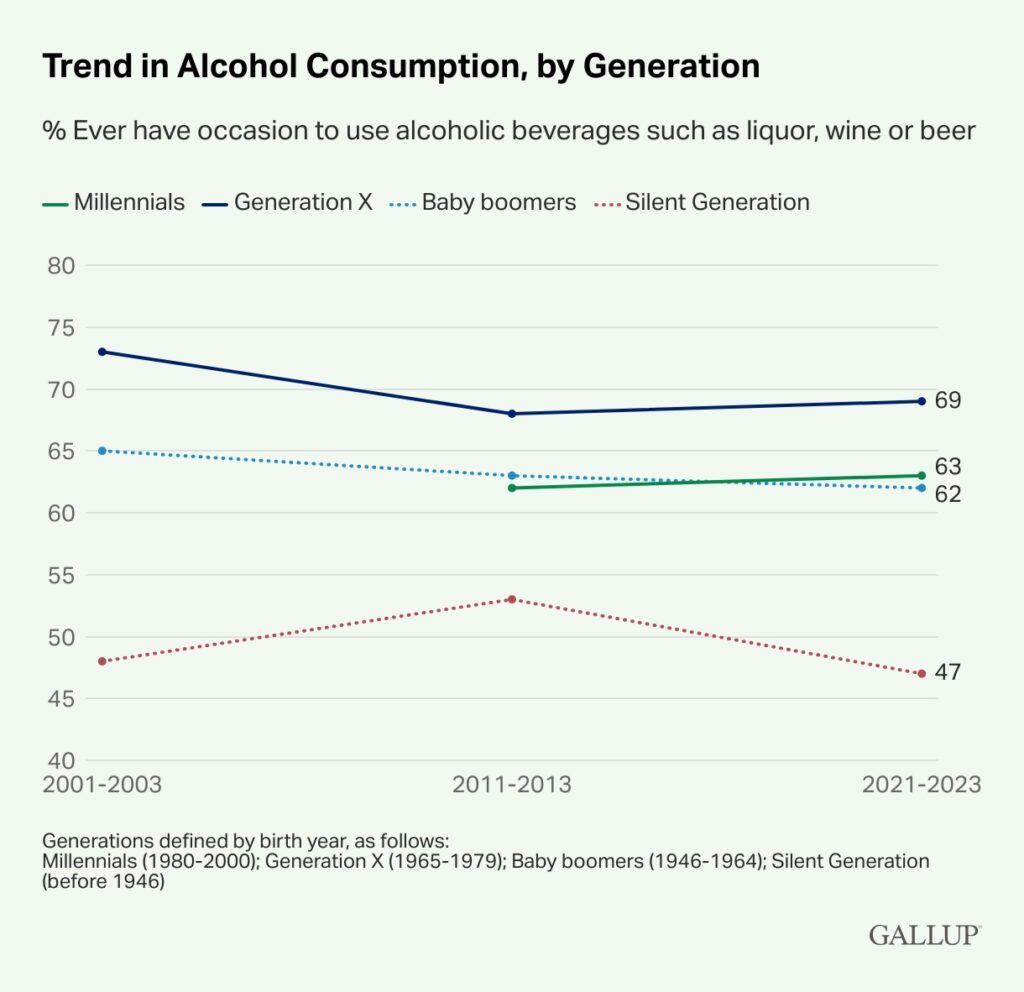
Trend in alcohol consumption, by generation. [Credit: Gallup]
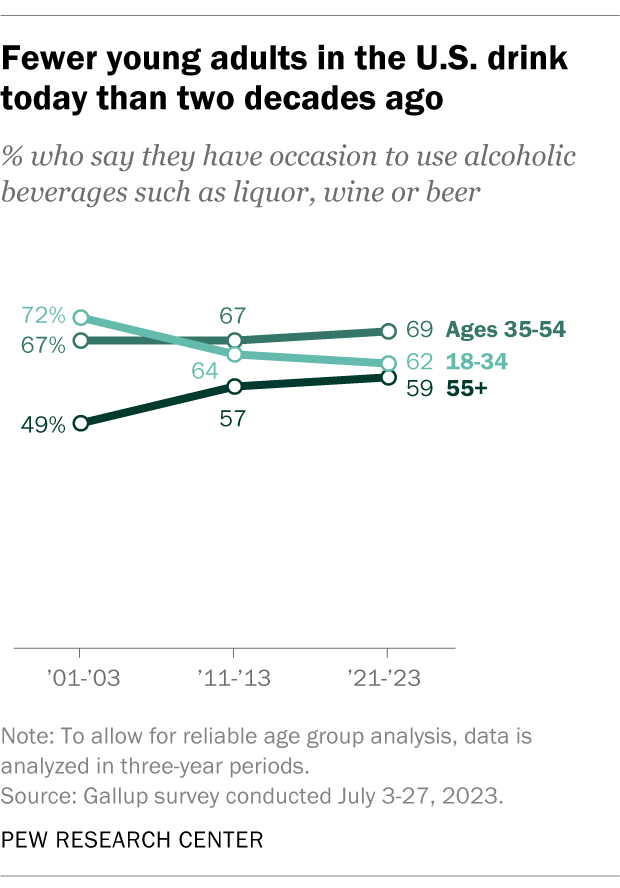
Gallup survey on alcohol consumption by age group.[Credit: Pew Research Center]
While the big bottle service parades in nightclubs may be fading, one party remains on the calendar: Cinco de Mayo. Smith said, “This Cinco and maybe next Cinco will continue to be dominated by the big tequila brands.” It might not be the blow-out parties of the past, but Cinco de Mayo isn’t canceled.
Publico, who’ll also be celebrating his son’s birthday on May 5th, said we should still be enjoying drinks and spirits that come from Mexico on Cinco de Mayo, whether it’s tequila, mocktails, or “cerveza.”
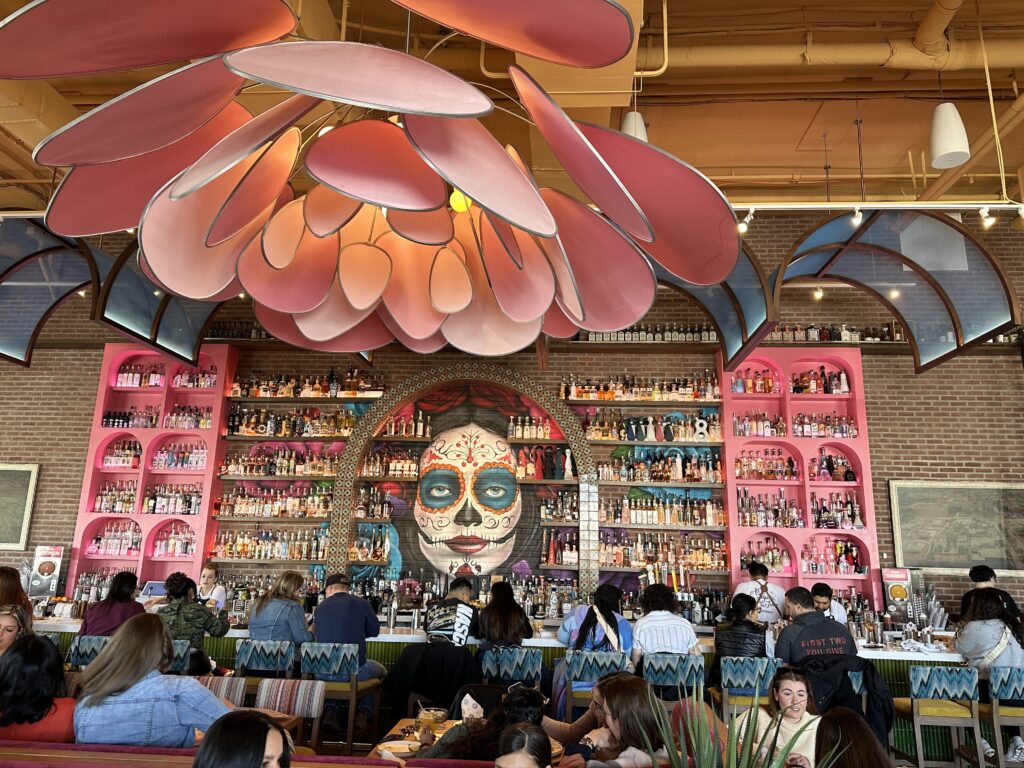
Diners at Meximodo in Metuchen, NJ. [Credit: Jannelle Andes]
No matter how the tequila tariff shakes out, it’s clear that tequila is more than just a party drink—it’s a livelihood and tradition, deeply rooted in heritage and craftsmanship.
